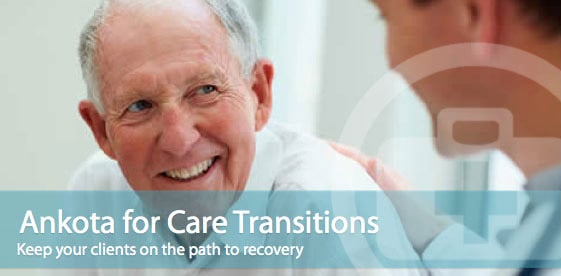Ankota’s founder Ken Accardi is our interviewee this time round. His other credits in Health Care IT include VP with ikaSystems (Halth Plan management), CTO with iGetBetter, CTO with Veritas Health Solutions – now iHopeNetwork (behavioral health), CIO at MedNest, and CIO at GE Healthcare (Service Division). Ken has an MBA in Entrepreneurship from Babson College, an MS in Computer Science from Virginia Tech, and a BS in Engineering from Bucknell.
How would you pitch your company? What’s your elevator pitch?
10% of the population is responsible for 75% of the health care spending in America. This is a well-known group of people who are elderly and have multiple chronic illnesses. Ankota’s solutions enable care providers to focus on this population and to help them avoid hospitalizations. Our customers provide care in private homes and long term care facilities that improve patient quality of life and avoid hospitalizations.
What sets you apart from competitors?
Our competitors focus on long-established models of care delivery like elderly care or post-acute home healthcare. By contrast, Ankota enables our customers to evolve and support new business models including care transitions (avoiding readmission after a hospitalization) and chronic care management (a new reimbursable telephone-based care service for patients with chronic illnesses).
What’s your business model?
Customers pay a monthly subscription fee for use of our systems.

Can you share some numbers? How many users do you have?
Ankota’s software has been used to service over 500,000 patients across more than 1,000 care delivery organizations.
Where do you see the company going from here?
Everyone acknowledges the potential of chronic care management and care transitions to provide better care at lower cost to the broadest population (this is called the “Triple Aim”), but the reimbursement for these services isn’t attractive enough for most care providers to get on board. Ankota is focused to make it very simple to provide this care and to empower the home care community to provide these services.
Where do you see the mHealth industry going?
In the long term, we expect that the mobile phone will become the primary health diagnostic tool, like the Star Trek Bioscan. But in the shorter term, the people who consume the most care are not smartphone power users. For this reason, we focus our mobile applications on caregivers.
How long are we from seeing modern mHealth technologies going mainstream?
mHealth will go mainstream when the majority of the 75 and older community are comfortable downloading apps on their iPhone or Android home. This is still a ways off.


